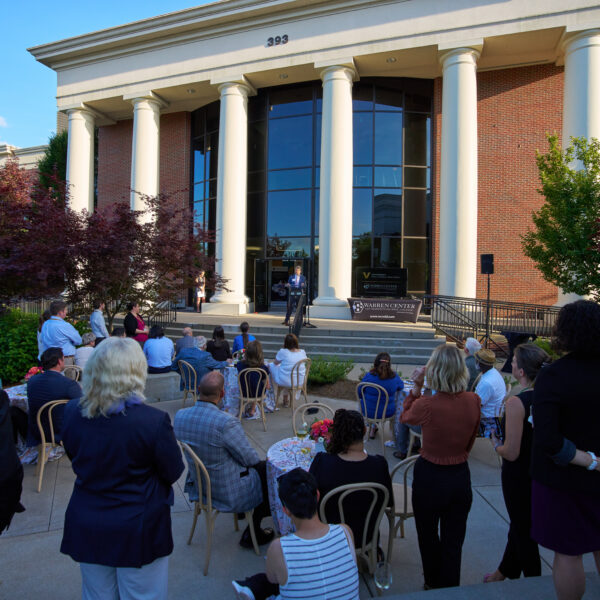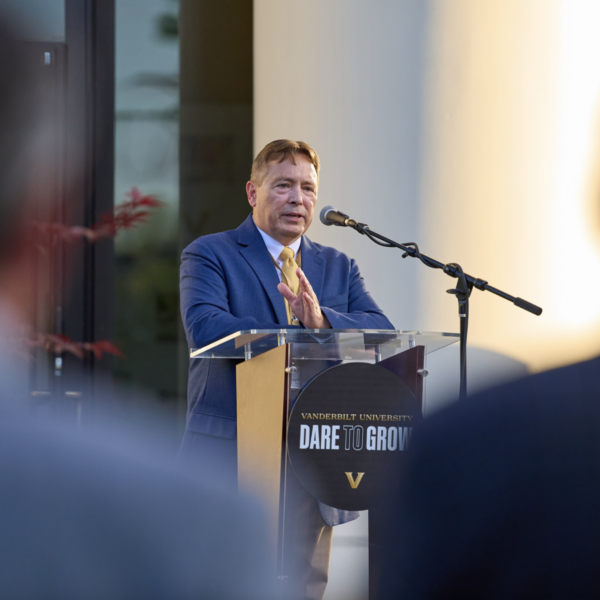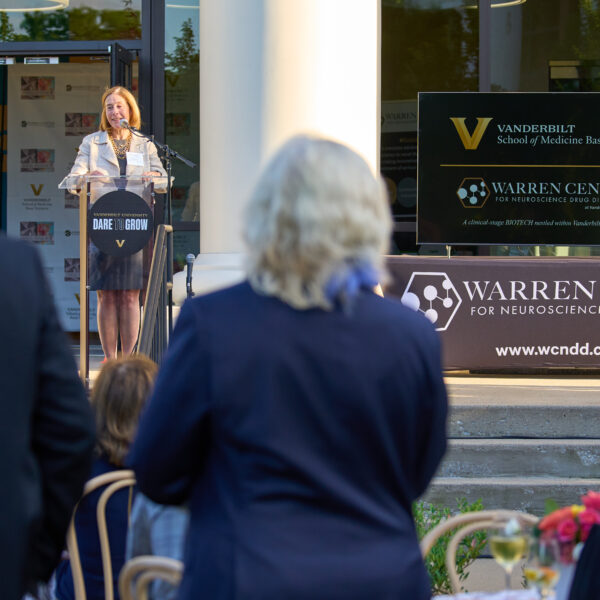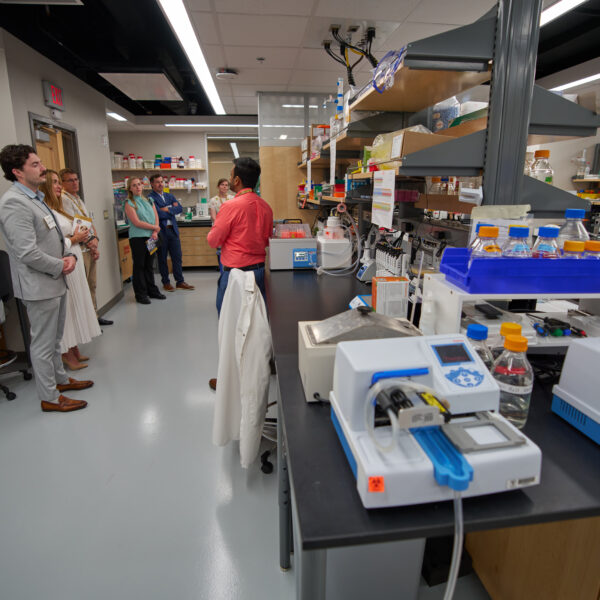
On May 30, the Warren Center for Neuroscience Drug Discovery opened its doors to the Nashville community to share firsthand the pioneering work it is conducting on neurological disorders. Throughout the evening, attendees—including esteemed faculty, staff, philanthropic partners, and community members—had the opportunity to learn more about the center’s origin, research, and educational initiatives and tour the state-of-the-art facilities in Franklin, Tennessee.
The center is dedicated to finding effective treatments and interventions for neurological conditions, including Parkinson’s, Alzheimer’s, addiction, and schizophrenia, that affect millions worldwide. Through partnerships with the community and generous philanthropic support, the WCNDD continues to push the boundaries of scientific discovery to pursue healthier futures for all.
The center is under the visionary leadership of Craig Lindsley, its executive director and University Professor of Pharmacology, Biochemistry, and Chemistry. “When we started, we really didn’t think we were going to develop drugs here. We thought we were going to be making tool molecules, doing a lot of deep basic science, and then maybe encouraging other folks in industry to pursue those targets and actually make the drugs,” Lindsley said. “And in the course of that exercise, we actually just kept advancing and making further advancements. Then we started doing clinical trials on our own. So, we really kind of surprised ourselves.”
Thanks to a generous gift provided by the William K. Warren Foundation, the Vanderbilt Center for Neuroscience Drug Discovery became the WCNDD and has made notable strides in understanding and combating debilitating neurological conditions. There are now three programs that have advanced into human clinical trials. “That is unheard of for an academic institution,” Kristen Gilliland said. Gilliland is the director of outreach and advocacy programs at the center.
John-Kelly Warren, CEO of the William K. Warren Foundation, added to Gilliland’s sentiment by saying, “Craig took a pharma laboratory environment, that is commercial, and brought it to a university environment.” He added that “we have to celebrate the genius of everyone that works here, including Craig … at the end of the day, [the WCNDD’s] out-of-the-box thinking is so pioneering that it’s going to make a huge difference.”
Today, the center holds almost as many patents as many large biotechnology and small pharma companies: It holds 140 issued U.S. patents and over 300 published patent applications. WCNDD researchers have also published over 600 peer-reviewed papers and have been cited over 17,000 times.
 To allow Lindsley and the WCNDD to keep accomplishing superior drug-discovery research, the center was recently added to the Discovery Vanderbilt portfolio. Discovery Vanderbilt is an initiative headed by Vanderbilt Provost C. Cybele Raver to support research while preparing the university to expand and diversify research initiatives, innovation, and entrepreneurship. “Craig Lindsley and his team represent, for me, the hallmark—really, the guiding light—of what I think our universities need to really transform not just Vanderbilt, but [to] serve as a model for all higher education,” Raver said. “Scientists like Craig are moving things into the world.”
To allow Lindsley and the WCNDD to keep accomplishing superior drug-discovery research, the center was recently added to the Discovery Vanderbilt portfolio. Discovery Vanderbilt is an initiative headed by Vanderbilt Provost C. Cybele Raver to support research while preparing the university to expand and diversify research initiatives, innovation, and entrepreneurship. “Craig Lindsley and his team represent, for me, the hallmark—really, the guiding light—of what I think our universities need to really transform not just Vanderbilt, but [to] serve as a model for all higher education,” Raver said. “Scientists like Craig are moving things into the world.”
In addition, Provost Raver and university leadership endorsed a 1:1 matching program at the WCNDD open house event. This program, which runs until Dec. 31, 2024, amplifies the impact of philanthropic contributions by matching qualifying gifts dollar for dollar, effectively doubling their effect in supporting the vital work of the WCNDD.
 To end the evening’s leadership remarks, John Kuriyan, dean of the School of Medicine Basic Sciences, expressed his thoughts about the WCNDD and its potential. “This is a very special place,” he said. “There are great things in store for us.”
To end the evening’s leadership remarks, John Kuriyan, dean of the School of Medicine Basic Sciences, expressed his thoughts about the WCNDD and its potential. “This is a very special place,” he said. “There are great things in store for us.”